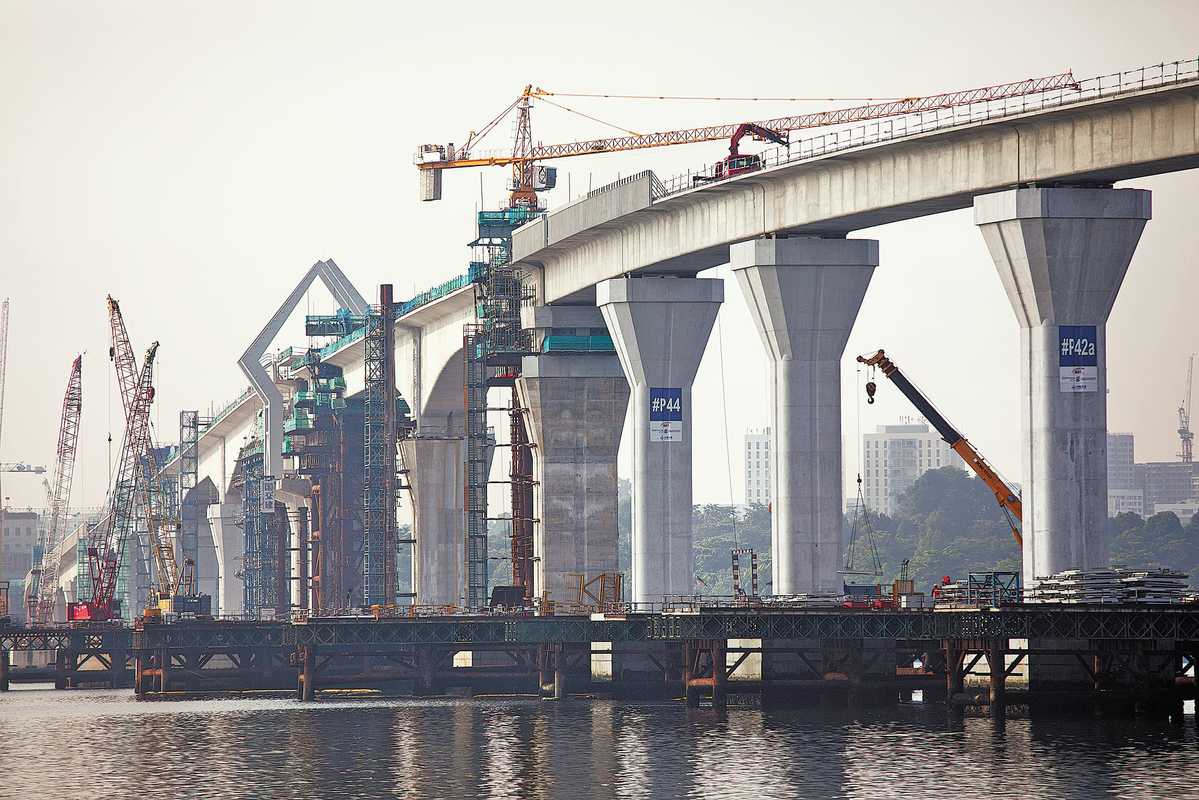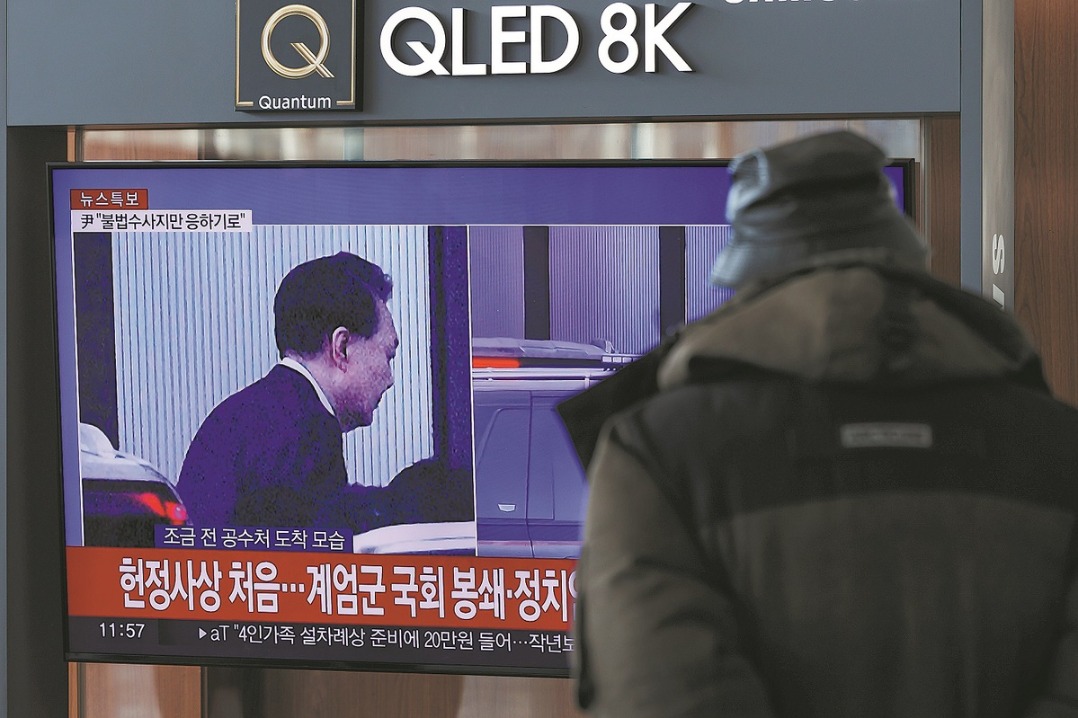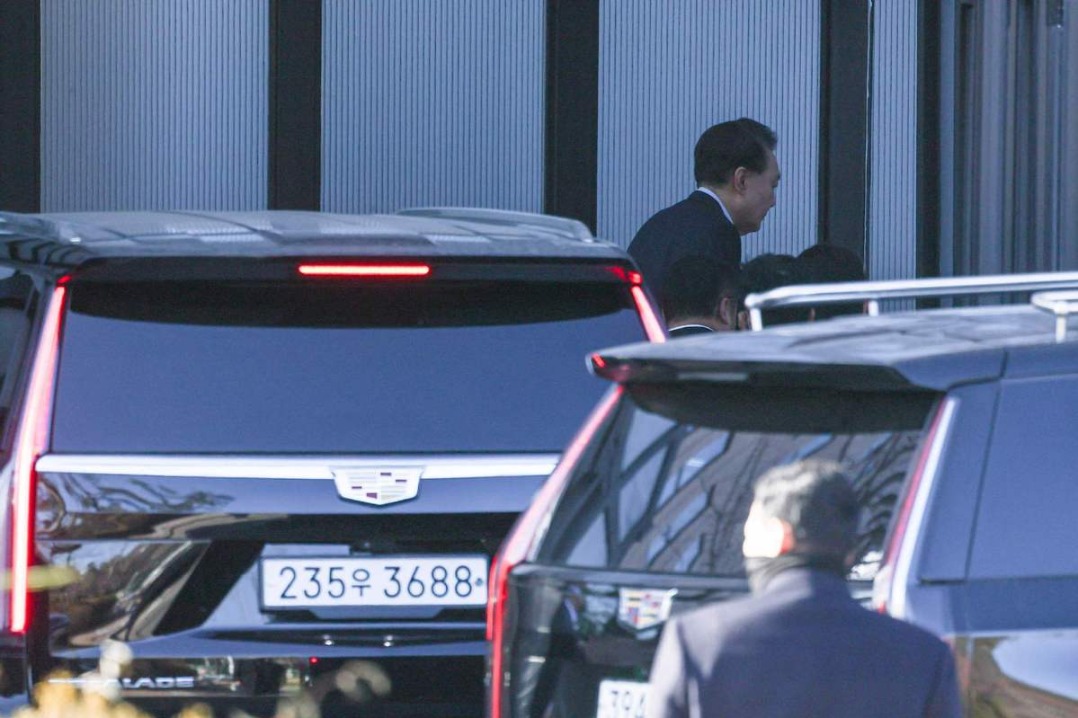Analysts laud Malaysia-Singapore economic zone


The establishment of a joint special economic zone in Malaysia's Johor state is expected to develop Singapore and Malaysia into a key regional hub for logistics and high-tech manufacturing, analysts say.
Malaysia's Prime Minister Anwar Ibrahim and his Singaporean counterpart Lawrence Wong signed an agreement to create the Johor-Singapore Special Economic Zone, or JS-SEZ, on Jan 7 during the annual leaders' retreat in the Malaysian city of Putrajaya. Both countries will establish separate funds to facilitate investments in the zone.
The initiative aims to attract high-value investments to Johor, complete 50 projects within five years, and create 20,000 skilled jobs.
At a news briefing following the signing, Wong said the zone's "greater potential" relies on the two countries "working together to attract new investment projects globally".
Khairussaleh Ramli, president and group CEO of Maybank in Kuala Lumpur, said in a statement that the zone will promote greater economic integration and boost intra-regional trade, as well as enhance Southeast Asia's resilience as an economic bloc.
Xu Le, a lecturer on business, strategy and policy at the National University of Singapore's Business School, said the strategic location of the JS-SEZ makes it a "strong contender" for becoming a logistics and trade hub in Southeast Asia.
The zone will leverage the strengths of both countries while addressing their respective limitations, she said.
Combining Malaysia's land and labor resources with Singapore's global connectivity and high governance standards will make the zone "an appealing destination" for global investors, she added.
Ian Yoong Kah Yin, a private equity investor and former investment banker in Malaysia, said the JS-SEZ could make Malaysian exports more competitive by streamlining the supply chain, as Singapore is technologically more advanced than Malaysia.
"Production costs, however, are expected to be higher than other major manufacturing hubs in ASEAN given the strong demand for labor and land in the JS-SEZ. The focus of industries in the JS-SEZ will be high value-added manufacturing," he said.
Yoong said that while it might appear that Johor will be the bigger beneficiary of the JS-SEZ by capitalizing on trade and foreign investment diversion, it is Singapore, as a global business hub for multinational corporations, that will enjoy "significant benefits" from being able to offer competitively priced manufacturing operations located in nearby Johor.
Xu said the JS-SEZ will encourage Singaporean industries to relocate to Johor to benefit from lower rental and labor costs. She said this will not only bridge gaps in skills and technology in specific areas, but also generate more job opportunities and support the development of a skilled workforce in Johor, narrowing disparities with Singapore's highly skilled labor force.
The zone, together with the completion of the Johor Bahru-Singapore Rapid Transit System, will foster greater connectivity and collaboration across various sectors, including business, financial and professional services, and manufacturing, Xu said.

































